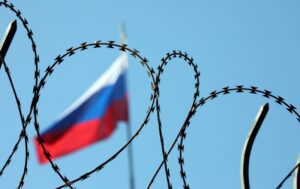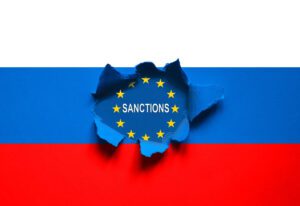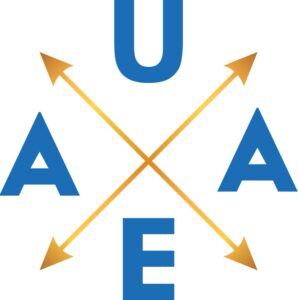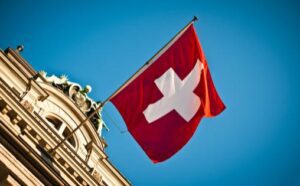
Heineken plans to exit Russia in the first half of 2023, although it is having difficulties with the sale of its Russian assets, the Dutch brewer said in a press release.
“It is challenging to close a transaction in Russia at the moment as rules continue to shift. We aren’t dragging our feet and do wish things would move more quickly. With that said, all things remaining the same, we aim to reach an agreement in the first half of this year,” the company said.
The company estimated the negative financial impact of the exit from Russia at about 300 million euros. The final loss will be determined when the Russian business is transferred to a new owner, Heineken said.
Heineken, which has seven breweries in Russia, announced in March 2022 that it was suspending new investment in and exports to Russia, as well as production and sales of its flagship Heineken brand. The company also announced that it would not accept any net financial benefits or profits from its business in Russia; all payments, royalties and dividends were suspended.
Heineken’s portfolio includes about 300 brands, including Heineken, Amstel, Birra Moretti, Desperados, Foster’s, Newcastle Brown Ale, Sagres, Sol, Star, Strongbow, Tecate and Tiger. National brands in Russia include Okhota, Zhigulevskoye and Stepan Razin, among others.

The European Union on Saturday, February 25, enacted the tenth package of sanctions against Russia, the EU press service said.
“The Council decided to introduce restrictive measures against 87 more individuals and 34 legal entities,” the text of the communiqué reads.
The list of restrictive measures includes Russian officials, military leaders, propagandists and, among others, the former general director of Motor Sich, Vyacheslav Boguslayev. He is on trial in Ukraine for treason.
In particular, the sanctions will affect such organizations as Alfa Bank, Rosbank and Tinkoff Bank, Commercial Automobiles – GAZ Group LLC, a number of Rosatom companies, Patriot media group, National Reinsurance Company, and Yevgeny Primakov, head of Rossotrudnichestvo, Russian Human Rights Commissioner Tatyana Moskalkova, Deputy Head of Moscow Region Government Vyacheslav Dukhin for deportation of Ukrainian children to Russia, surgeon Leonid Roshal, head of Russian Presidential Council for Civil Society and Human Rights Valery Fadeev, Rosatomflot enterprise, which operates the Russian nuclear icebreaker fleet, the Russian Defense Ministry, the Russian Foreign Intelligence Service, Kirill Kleimenov, Deputy General Director of Channel One, Alexander Akopov, Deputy General Director of National Media Group, and military commander Alexei Avdeev, Mikhail Teplinsky, military commander, Sergei Karakaev, Rossiya Segodnya media group and executive director Kirill Vyshinsky, Rossiya 24 chief executive Yevgeny Bekasov, Literaturnaya Gazeta chief executive Maxim Zamshev, Regnum agency chief Marina Akhmedova, and Sputnik news agency.
The sanctions also affected four Iranian citizens, including the managing director of the aerospace company Qods Aviation Industry.
The sanctions include an asset freeze, a ban on entry and transit through EU countries and a ban on citizens and companies in the EU providing funds to them.
“We will continue to increase the pressure on Russia for as long as necessary,” said Josep Borrell, head of EU diplomacy.
Source

The Swedish presidency of the European Council officially announces the adoption of the tenth package of sanctions for Russia.
“A year has passed since Russia’s brutal and illegal invasion of Ukraine. Today the EU approved the 10th package of sanctions against Russia,” the presidency’s official Twitter page said.
It specifies that the package includes, for example, tougher export restrictions on dual-use and technology, targeted restrictive measures against individuals and entities that support the war, spread propaganda or deliver drones used by Russia in the war, and measures against Russian disinformation.
“Together, EU member states have imposed the most decisive and far-reaching sanctions in history to help Ukraine win the war. The EU is one with Ukraine and the Ukrainian people. We will support Ukraine for as long as it takes,” it said.

The export of agro-processing products from Ukraine to Russia in 2022 decreased by 15.3 times in comparison with 2021 – down to $ 3 million from $ 46 million, while the supply of similar products to Belarus decreased by 7.5 times, to $ 69 million from $ 520 million.
According to the website of the Ukrainian Agrarian Export Association (UAAE), Ukrainian exporting companies are no longer planning to supply food products to the Belarusian and Russian markets, given the military aggression of Russia against Ukraine and the successful reorientation of its export to the European Union.
According to UAAE, in particular, the export of cocoa paste to Russia stopped in 2022, although in 2021, Russia was its largest buyer with the share of 60% of Ukrainian imports of these products and the volume of $20 million.
Ukraine also stopped supplying ice cream to Russia last year, although in 2021 it was the 3rd largest exporter of this Ukrainian product after Moldova and Israel. In 2022 Germany was added to its main markets instead.
Also in 2022, deliveries to Belarus, in particular the Ukrainian bakery confectionery decreased by 8.5 times – down to $ 2 million, whereas in 2021 it was the 3rd largest importer in this segment with an indicator of $ 17 million. Similarly, the supply of Ukrainian frozen beef – to $0.3 million in 2022 against $ 13 million a year earlier, and canned fruit products – by 6.7 times, to $1.5 million from $10 million.
According to the association, if in 2021, Belarus was the main importer of Ukrainian potatoes with the share of exports at 80% by $3 million, in 2022, it took the second place with 23% and $1 million respectively (a 3-fold decrease). Also, the supply of Ukrainian tomatoes, onions, cabbage, carrots, where in 2021, Belarus was among the top destinations for the purchase of these commodities, has decreased significantly or ceased. In addition, last year the Republic of Belarus from the position of the leader of importers of cooked unfrozen vegetables from Ukraine, where it took first place in 2021, “displaced” Moldova, Georgia and Hungary.
“With actually unchanged rates of export of jams, jellies and marmalades in 2022, their main buyers were Poland, Moldova and the Czech Republic (in 2021 – Poland, Belarus, Israel),” the association stressed in the report.
UAEA specified that in the segment of frozen vegetables last year Ukraine generally increased the volume of exports, while its geographical structure changed compared to 2021: Germany moved up to the second position instead of Belarus, which was ousted from the top three, and Turkey took the honourable “bronze”. Poland remained the leader here, as it was the year before last.
“The reciprocal embargoes with Russia, imposed since 2016, significantly reduced mutual trade even earlier. In particular, exports of frozen beef, fresh and processed vegetables, and confectionery products to Belarus dropped significantly. Last year, supplies of cocoa paste and ice cream to the Russian market were also reduced to zero,” the organization summarized in its report.

Ukrainian President Vladimir Zelensky on Sunday signed a decree enacting a decision of the National Security and Defense Council of Ukraine to impose personal sanctions against 198 Russian propagandists and talk show participants on Russian channels, as well as other figures in the Russian media sphere.
The corresponding document #23/2023 was published on the website of the head of state.
“To enact the decision of the National Security and Defense Council of Ukraine dated January 15, 2023 “On the application and amendment of personal special economic and other restrictive measures (sanctions),” the decree reads.
The decision of the National Security and Defense Council is attached to the decree. It contains a list of 198 people of Russian culture and the media sphere, against whom personal sanctions are imposed.
The list includes, among others, Russian blogger, translator and publicist Dmitry Puchkov (Goblin), politician Sergei Stankevich, general producer of Russian propaganda television channel “Zvezda,” Boris Yanovsky, TV presenter Yana Rudkovskaya, actor and TV presenter Boris Korchevnikov, Russian music critic and journalist Sergei Sosedov, sociologist Yevgeny Kopatko, political scientist Rostislav Ishchenko, Rodion Miroshnik, publicist and propagandist Vladimir Kornilov, sports journalist Dmitry Guberniev, film director Andrei Konchalovsky, and other propagandists from Russian central TV channels, as well as so-called Russian “war correspondents.
Diana Panchenko, a former Ukrainian TV anchorwoman who now shoots propaganda clips for Russian television in the temporarily occupied territories of Ukraine, was also put on the list.
A full package of personal sanctions for a period of 10 years is being imposed against those on the list.
“This decree shall enter into force on the day of its publication,” the document signed by the president reads.

Switzerland followed the EU in imposing new sanctions against Russia, with 141 individuals and 49 legal entities added to the “black lists,” the Swiss government said in a statement.
“Switzerland, by amending the sanctions lists on December 21, thus joined the EU measures,” the press release said.
“Switzerland is amending the sanctions regime as part of the measures that the EU adopted in connection with the supply of Iranian drones to Russia and the continuing alarming situation in Ukraine,” the document specified.
The sanctions will take effect at 6 p.m. local time.
According to the statement, on December 16, the EU also imposed a ban on exports to Russia of a number of other categories of goods and services, and the Swiss government, in turn, will study these measures.
On December 16, the EU Council approved the ninth package of sanctions against Russia, which includes restrictions against the mining and energy sectors and a ban on exports of space industry goods and drones.
Among other things, the EU also added 168 more entities related to the defense industry of Russia to its “black lists. In addition, the ninth EU sanctions package against Russia included 144 individuals, including high-ranking Russian officials, MPs, military personnel and artists from Russia.